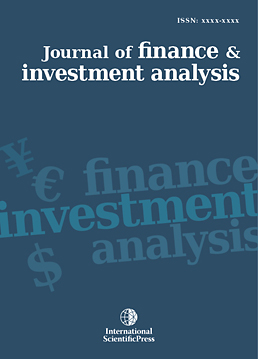Journal of Finance and Investment Analysis
The Behaviour and Financial Performance of Individual Investors in the Trading Shares of Companies Listed At the Nairobi Stock Exchange, Kenya
-
 [ Download ]
[ Download ]
- Times downloaded: 11823
Abstract
While conventional academic finance emphasizes theories such as Modern Portfolio Theory (MPT) and the Efficient Market Hypothesis (EMH), the emerging field of behavioral finance investigates the cognitive factors and emotional issues that impact the decision-making process of individuals, groups, and organizations. This paper presents some general principles of behavioral finance including: overconfidence, cognitive dissonance, regret theory, and prospect theory. The paper seeks to identify such behaviors from individual investors as they set out to make their investment decisions. The paper uses both a questionnaire survey and secondary data from the NSE and CMA to identify the individual investor behaviors and determine their financial performance respectively. In conclusion, it was found out that there were varied behaviours and financial performance of individual investors in trading shares of companies listed at the Nairobi Stock Exchange, Kenya. Some investors exhibited rational behaviour in making their investment decisions. On the contrary, there were investors who were poised to realize negative results due to irrationality and herding behaviour. The paper will contribute to literature which will form the basis of future more advanced research work on the field of behavioral finance.
